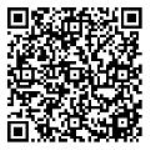【Special issue: Confucian ethos: Etiquette & Vernacular life】Jeong Sambong’s Refutation of Buddhism
Author: Cho-Hon Yang (Department of Chinese Literature, National Central University)
Vol.&No.:Vol. 59, No. 1
Date:March 2014
Pages:43-62
DOI:10.6210/JNTNULL.2014.59(1).03
Abstract:
Jeong Dojeon (pen name: Sambong) was a noble Confucian in the early Joseon Dynasty. He was also a major advisor to King Taejo, the founder and first king of the Joseon Dynasty. As a Confucian, Sambong was a strict critic of Buddhism. The base of his criticism was Chu Hsi’s philosophy. Sambong used the Chinese neo-Confucian philosophers’ theories in the Song Dynasty, such as Chou Lien-his, Chang Tsai, and Cheng brothers (Cheng Hao and Cheng Yi), to refute the Buddhism. His representative work is “Bulsijapbyeon,” which has 20 sections. Six critical sections of “Bulsijapbyeon,” were analyzed. I attempt to show that Sambong profoundly understood the difference between Confucianism and Buddhism. His critical tandpoint toward Buddhism was based on a crucial contention regarding Confucianism: what a person morally ought to do is only for the sake of morality itself but not for the sake of any interests or other purpose.
Keywords:Joseon Dynasty, moral consciousness, Korean Confucianism, to refute Buddhism
 《Full Text》
《Full Text》
